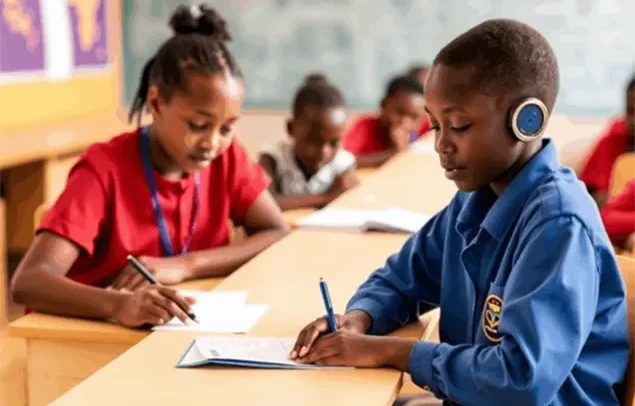Students themselves are increasingly aware of this gap. Aisha, a 17-year-old secondary school student in Kisumu, Kenya, who recently attended a weekend AI bootcamp, shared her revelation: “I used to think AI was just science fiction. But then I saw how it’s used to decide who gets a job or a scholarship. That made me want to understand it more — and maybe even build my own AI someday.”
Many teachers, too, are ready to lead the change — if only given the tools. “My students are curious,” says Mr. Mpho Mlangeni, a STEM teacher in South Africa. “They ask about how Netflix recommends shows, or how Siri answers questions. I want to explain, but I wasn’t trained in AI myself. We need support, training, and a curriculum that’s grounded in African realities.”
That support is beginning to arrive — and it’s African-led. Dr. David King Boison, Lead Consultant at Knowledge Web Center and the strategic architect of the AiAfrica Project, is unequivocal: “This is our moment. We can either empower our youth with AI literacy or continue outsourcing the future to others. The AiAfrica Project was designed for scale, inclusion, and urgency — to help every country, from Rwanda to Imo State, move from pilot to policy, and from awareness to action.”
Experts from across the African Union and international organisations are also urging reform. A recent statement from the African Development Bank’s digital skills taskforce warned, “Unless Africa embeds AI literacy now, we will miss the demographic dividend we talk so much about. Youth potential is not automatic — it must be equipped.”
These voices are not calling for perfection — they’re calling for progress. They understand that Africa doesn’t need to copy the global model wholesale. It needs to build its own pathways, grounded in African languages, local data, and community priorities — but informed by global trends. What unites these voices is a shared belief: Africa’s youth are ready for AI. Now, education systems must be ready for them.
- A Defining Moment for Africa
Africa stands at a crossroads. One path leads to continued digital dependency, where our youth consume technology built by others, operate systems they don’t fully understand, and compete for jobs already rigged by invisible algorithms. The other path leads to digital sovereignty, where young Africans become the architects of their future, designing intelligent systems that reflect their languages, values, and aspirations.
The choice is ours. But the window is closing.
The Fourth Industrial Revolution will not pause while Africa catches up. The tools of transformation — artificial intelligence, machine learning, and data science — are already shaping global economies, governance, and even the boundaries of citizenship. For Africa to lead, we must urgently rethink what it means to educate our children in this era.
Coding was the starting point. But AI is the language of the future. Every African student, from rural Tamale to urban Johannesburg, deserves the right to understand the systems shaping their lives — not just to interact with them, but to create, question, and improve them.
This is not a matter of luxury. It is a matter of justice, opportunity, and long-term survival.
We know what must be done. Curricula must be reformed to embed AI literacy from the ground up. Teachers must be trained and supported. Schools must be connected, equipped, and empowered. Policy makers must act, not with timid pilots, but with bold national frameworks backed by funding and resolve.
And we are not starting from zero. The AiAfrica Project, sponsored by the African Diaspora Central Bank (ADCB) and led by Knowledge Web Center, offers a ready-made, African-led solution. With a $2 billion sponsorship, a growing footprint across multiple countries, and a target to train 11 million Africans by 2028, AiAfrica is more than a program — it is a movement.
Countries that act now can leapfrog years of experimentation. They can integrate world-class AI training into national systems, empower teachers, and prepare their citizens to thrive in the global AI economy. Rwanda, Imo State, and others are already moving. The rest must follow — not tomorrow, not next year, but now.
This is a defining moment for African education. One that will be remembered not for what was discussed, but for what was done.
Let us rise to it. Let us ensure that the next generation of Africans does not just inherit the future — they build it.
Source: Dr. David King Boison and Dr. Ahmed Antwi-Boampong


